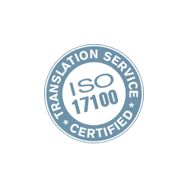What Is Conference Interpreting?
Hosting an international conference or seminar is one of the best ways for a business to reach a wider demographic.
But it often comes with more complications than a regular event. When your audience speaks a variety of languages or dialects, it can become challenging to work out the logistics of getting your message across.
Conference interpretation is just one of the many different types of translation , and is the best way to simplify a multilingual event. But what is conference interpretation?
How does it work?
Conference interpreters basically ensure that multilingual events can cater to a variety of guests, and still run with ease. Though the difference between an interpreter and a translator is often muddled, the two services are usually provided by different individuals.
Unlike regular translation, which typically involves text or written work, or other different types of interpreting , conference interpretation is carried out as the event is going on.

Simultaneous Interpretation
The most popular style for conference interpretation is to work simultaneously. This means the interpretation is delivered at the same time as the original speaker.
In large scale settings simultaneous interpretation is usually relayed to the audience through headphones, as the interpreter is required to be isolated. This prevents the interpreter from disturbing the speaker, and ensures the translation is clear.
Typically sat in a soundproof booth with a headset and microphone, the interpreter broadcasts to the headsets of the audience members who do not speak the language of the main speaker.
Consecutive Interpretation
Consecutive interpretation is more common, working slightly differently to simultaneous interpretation. In the consecutive style, the interpreter follows the main speaker very closely, but interprets only when they pause.
Usually after several sentences, the interpreter waits for natural breaks in the flow of speaking to communicate. Unlike simultaneous interpretation, consecutive style doesn’t usually require any equipment, as it’s used for smaller scale events. If translation was required for only a few audience members, the interpreter would sit and quietly interpret directly.
What skills does it take?
Any form of translation requires an excellent understanding of their native tongue, in addition to a comprehensive grasp of several other languages. However due to the intensive nature of conference interpreting in particular, a wide set of skills is needed beyond the traditional interpretation qualifications .
Interpreters working in real time require various skills, including the ability to take in one language whilst speaking another. In the seconds that our brains process the information, interpreters must process, translate and then relay the information back.
Other than a strong understanding of several languages, interpreters must detect changes in tone, and perform calmly under stress. It is the most difficult form of interpreting, as there’s little room for error or hesitation.
It can also be extremely mentally taxing, with interpreters often in high pressure situations such as European Parliament meetings. In these situations, it’s vital to be focused, precise and quick with interpretations.

Why use a conference interpreter?
At events with a variety of guests who do not all share a common language, interpretation is one of simplest ways to communicate with everyone.
Conference interpreters can be a huge asset when taking your business international , as they’ll keep your events running smoothly and professionally from the get go.
Simultaneous interpretation is excellent for speeches or addresses as it enables one-way communication. But interpreters can then also be employed to interpret consecutively for direct discussions.
They’re likely to be more expensive due to the extremely high level of training, and additional equipment required. However, it is well worth the cost.
If you’re considering machine translation vs human translation for your event, there’s little comparison for the services they provide. Using machine translation services risks technical problems, and fails to provide the accuracy of an interpreter.
How to hire a conference interpreter
When choosing a conference interpreter, it’s important to find a capable and experienced interpreter for your event.
Whether you’re planning a small or larger scale conference with guests requiring various interpretations, Global Language Services can help provide a solution. With over one thousand linguists at our helm, we guarantee we’ll find a way to work with your needs.
Get in touch with us today to talk about your specific needs.





